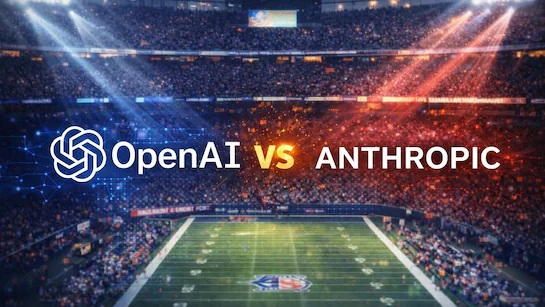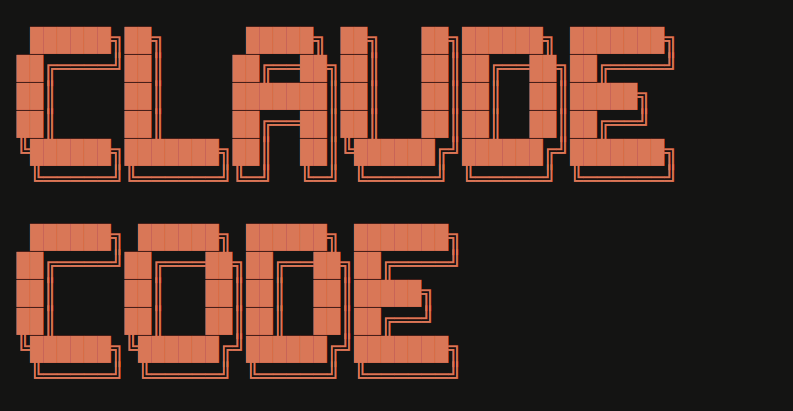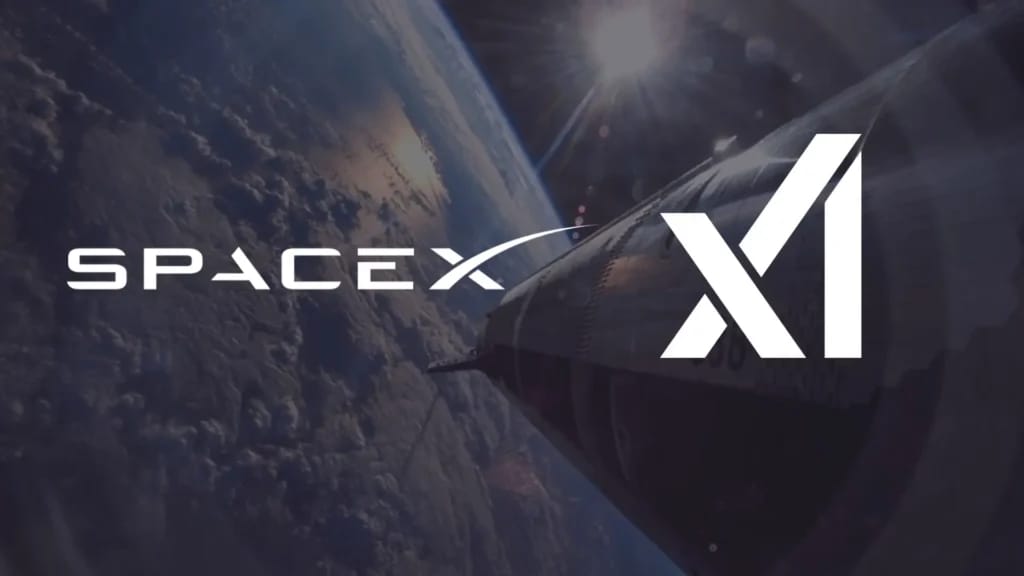
*Augment Markets, Inc. is a technology company offering software and data services with securities-related services offered through its wholly-owned but separately managed subsidiary Augment Capital, LLC, Member of FINRA/ SIPC.Meta’s latest investment in Scale AI is not just a headline-making splash, it may be the most significant AI liquidity event of the year. At roughly $14.8 to $15 billion for a 49% stake, Meta is executing one of the most unconventional and strategic M&A plays we’ve seen in years. For private market investors active in late-stage tech, this isn’t just a deal worth watching. It resets the board.
The structure: A strategic minority with maximum impact
Meta is acquiring 49% of Scale AI, the San Francisco-based data labeling leader that powers training data pipelines for the world’s top AI labs. But this isn’t a full acquisition. Instead, it's a highly structured minority investment with cascading implications.
The deal operates like a synthetic secondary. Meta invests billions into Scale AI. Scale then issues a dividend to its existing shareholders, a mix of employees and VC firms. Shareholders keep their equity but see their ownership sharply diluted. Meta avoids taking board seats or majority control, likely to avoid antitrust red flags, while still gaining preferential access to critical infrastructure.
Jason Droege, Scale's current chief strategy officer, will take over as CEO. Co-founder Alexandr Wang, widely regarded as one of the most dynamic operators in AI, will join Meta to lead a new "Superintelligence" lab focused on advanced research.
Meta's motive: Rebooting its AI narrative
Mark Zuckerberg may be the greatest M&A operator of his generation. Instagram and WhatsApp were once viewed as expensive bets but ultimately helped Facebook reinvent itself, twice. With AI, Zuck is pulling the same lever again.
Meta has struggled to find its footing in AI. Llama 4 failed to impress, top AI researchers have left despite lavish compensation offers, and its assistant has not broken through with consumers. While Meta has distribution, compute, and open weights, it has lacked clear strategic direction. This deal attempts to fix that overnight.
Rather than try to organically build a world-class team, Zuck executed what may be the most expensive acquihire in tech history. The 49% stake in Scale is as much about securing Alexandr Wang and his top engineers as it is about owning a piece of the data labeling stack. It's talent acquisition disguised as a corporate partnership.
The structure of the deal is designed to potentially sidestep regulatory scrutiny. No voting rights. No board seat. No direct control. But plenty of influence.
Strategic outcomes for Meta
This transaction delivers several key outcomes:
- Talent infusion: Meta gets Wang, one of the most respected operators in AI, and a new team to lead the next phase of research.
- Data moat: Scale’s human-in-the-loop infrastructure and Reinforcement Learning from Human Feedback (RLHF) capabilities give Meta a unique advantage in training alignment-sensitive models.
- Control without ownership: Meta now has effective influence over a vendor used by OpenAI, Google, and Anthropic. Even without majority ownership, it can affect queue priority, pricing, and future product direction.
But this isn’t without risk. Google and OpenAI are unlikely to remain Scale customers with Meta now a shadow owner. That could implode Scale’s enterprise value. In fact, Meta may be paying billions to break the business model of the company it just backed. Still, for Meta, the prize isn’t Scale’s revenue. It’s alignment, talent, and narrative control.
Behind the Scenes: Tension, Risk, and Reactions
While the Meta–Scale AI deal may be a game-changing move, not all signs point to smooth sailing. As additional reporting surfaces, questions are emerging about the internal dynamics between the two companies, the potential downside risk for Meta, and how the rest of the industry is responding.
Signs of Strain Between Meta and Scale AI
Both TechCrunch and IDN Financials have reported growing friction between Meta and Scale AI behind the scenes. Sources close to the companies have pointed to misaligned expectations, especially around product delivery timelines and roadmap execution.
Insiders suggest there have been communication breakdowns between technical teams, particularly as Meta accelerates its internal AI development efforts. As Meta pushes deeper into custom model training and infrastructure, there’s concern that Scale may struggle to keep up with the shifting demands of its largest (and most powerful) partner.
Even more telling: Meta’s aggressive internal build-up — including hiring away key Scale engineers and launching its own "Superintelligence" lab — is being interpreted by some analysts as a hedge against Scale AI’s ability to deliver long term.
Meta’s $15B Risk: High Reward, But Not Without Exposure
So far, much of the market conversation has focused on Meta’s upside — talent, data, and infrastructure access. But the financial and strategic risks are real.
Meta has committed nearly $15 billion for a minority stake in a company whose customers include its fiercest rivals — OpenAI, Google, and Anthropic. Now, with Meta on the cap table, those same customers may pull back — potentially imploding Scale AI’s enterprise value. Meta, in effect, may have just paid billions to weaken the very business it invested in.
Analysts are also questioning whether Meta is overexposed. What happens if Scale underdelivers or loses critical accounts? For Meta, the result could be a delay in model development, loss of platform momentum, and a forced reliance on internal buildouts that are still ramping.
The deal structure — with no board seat or voting rights — gives Meta flexibility, but little formal control if the partnership hits turbulence.
How the AI Ecosystem Is Responding
This isn’t just a two-party deal. It’s rippling across the entire AI ecosystem.
Meta’s move has set off strategic recalibrations from major players. According to industry watchers, some rivals now view Scale as less neutral and potentially compromised. Others see an opening to build competing data infrastructure offerings or accelerate their own talent M&A to match Meta's move.
For emerging vendors in AI data ops, this deal is a signal: the category is consolidating fast — and Big Tech wants a front-row seat.
Meanwhile, investor sentiment remains split. Some see the move as visionary; others worry Meta’s bet is too large, too soon, and too reliant on a third party already under pressure.
Implications for Scale AI
- Liquidity event: Shareholders receive a massive cash dividend, converting previously illiquid shares into realized gains without an IPO.
- Loss of neutrality: With Meta involved, customers who are direct competitors may churn.
- New leadership: Jason Droege faces the tough task of preserving independence while satisfying Meta’s data needs.
- Valuation milestone: According to an article published by Reuters, the implied valuation of $28 to $30 billion, roughly 16x projected 2025 revenue of $2 billion, sets a new benchmark for AI infrastructure players.
This move also effectively transitions Scale from an enterprise SaaS business to a semi-captive research partner. The upside? A permanent backer in Meta. The downside? Eroded market trust and declining customer diversification.
The bigger picture: Private secondaries in focus
For secondary market participants, this is one of the most relevant developments of the year. Here’s why.
1. Secondaries dominate the exit landscape
According to Pitchbook and Theory Ventures, secondaries accounted for 71% of all VC exit dollars in 2024, compared to just 26% from M&A and 3% from IPOs. That trend continues to accelerate as public listings remain elusive and regulatory pressure limits traditional acquisitions.
This deal mimics a structured secondary. Existing holders get paid, no IPO needed, no acquisition required. It’s a new playbook for liquidity in tight exit environments.

2. Benchmark Reset for AI Infrastructure
At a 16-17x forward revenue multiple, the Scale AI valuation creates an anchor point. Investors in similar private market companies may raise their pricing. Buyers will need to recalibrate underwriting assumptions.
3. Surge in Liquidity Supply
The dividend will inject hundreds of millions into the pockets of Scale employees and early investors. That capital is likely to be recycled into:
- New startup investments
- Secondary sales of remaining Scale equity
- Diversified allocations into other late-stage AI companies
A short-term bump in deal volume may follow as this windfall moves back into the market.
4. Scarcity and Compression
With Meta locking up nearly half of the category leader, allocators looking for exposure to AI data infrastructure now have fewer options. That scarcity should raise clearing prices on secondary bids and compress time-to-fill for SPVs targeting comparable assets.
Risks to Monitor
- Regulatory fire: The FTC may still challenge the deal under vertical foreclosure theories, especially given Meta's history.
- Synthetic data trends: As AI-generated training data improves, the premium on human-verified labels may diminish.
- Cultural mismatch: Meta’s corporate structure could clash with Scale’s startup ethos, jeopardizing talent retention.
- Client attrition: Competitors pulling business from Scale could lead to revenue erosion and diminished long-term value.
Final Takeaways
Meta’s $15 billion investment in Scale AI is a high-stakes, high-reward maneuver designed to reboot its AI ambitions. It also demonstrates a new path to liquidity for shareholders of private companies.
For private market investors, the message is clear:
- Be prepared for repricing across the AI stack
- Watch for follow-on strategic plays from Big Tech
- Anticipate a potential increase in trading velocity on secondary platforms
Augment makes it easy for accredited investors to act on moments like this by offering access to high-quality secondary opportunities in leading private companies.
*Augment Markets, Inc. is a technology company offering software and data services with securities-related services offered through its wholly-owned but separately managed subsidiary Augment Capital, LLC, Member of FINRA/ SIPC.
Important Disclosures: This material has been prepared for informational purposes only. None of the information provided represents an offer or the solicitation of an offer to buy or sell any security. The information provided does not constitute investment, legal, tax, or accounting advice. You should consult with qualified professionals before making any investment decisions. Investing in private securities involves substantial risk, including the potential loss of principal. Private securities are typically illiquid, have limited pricing transparency, and often require longer holding periods. These investments are available exclusively to qualified accredited investors and offer no guarantee of returns. Projections and forward-looking statements in this content are based on current market conditions and assumptions. Actual results may vary significantly and past performance does not indicate future outcomes. Views are those of the author. Additionally, past performance of private securities does not indicate or predict future results.
FOR ACCREDITED INVESTORS ONLY: Under federal securities laws, private market investments on this platform are available exclusively to Accredited Investors. Verification of status required before investing. Private investments involve significant risks including illiquidity, potential loss of principal, and limited disclosure requirements. "Augment" refers to Augment Markets, Inc. and its affiliates. Augment Markets, Inc. is a technology company offering software and data services. Investment advisory services are offered through Augment Advisors, LLC, an SEC-registered investment adviser. Brokerage services are offered through Augment Capital, LLC, an affiliated broker-dealer and member FINRA/SIPC. Registration with the SEC does not imply a certain level of skill or training. Neither Augment Advisors, LLC nor Augment Capital, LLC provide legal or tax advice; consult your attorney or tax professional regarding your specific situation. For additional information, please refer to Augment Advisors, LLC’s Form ADV Part 2A (Firm Brochure) and FINRA BrokerCheck.








